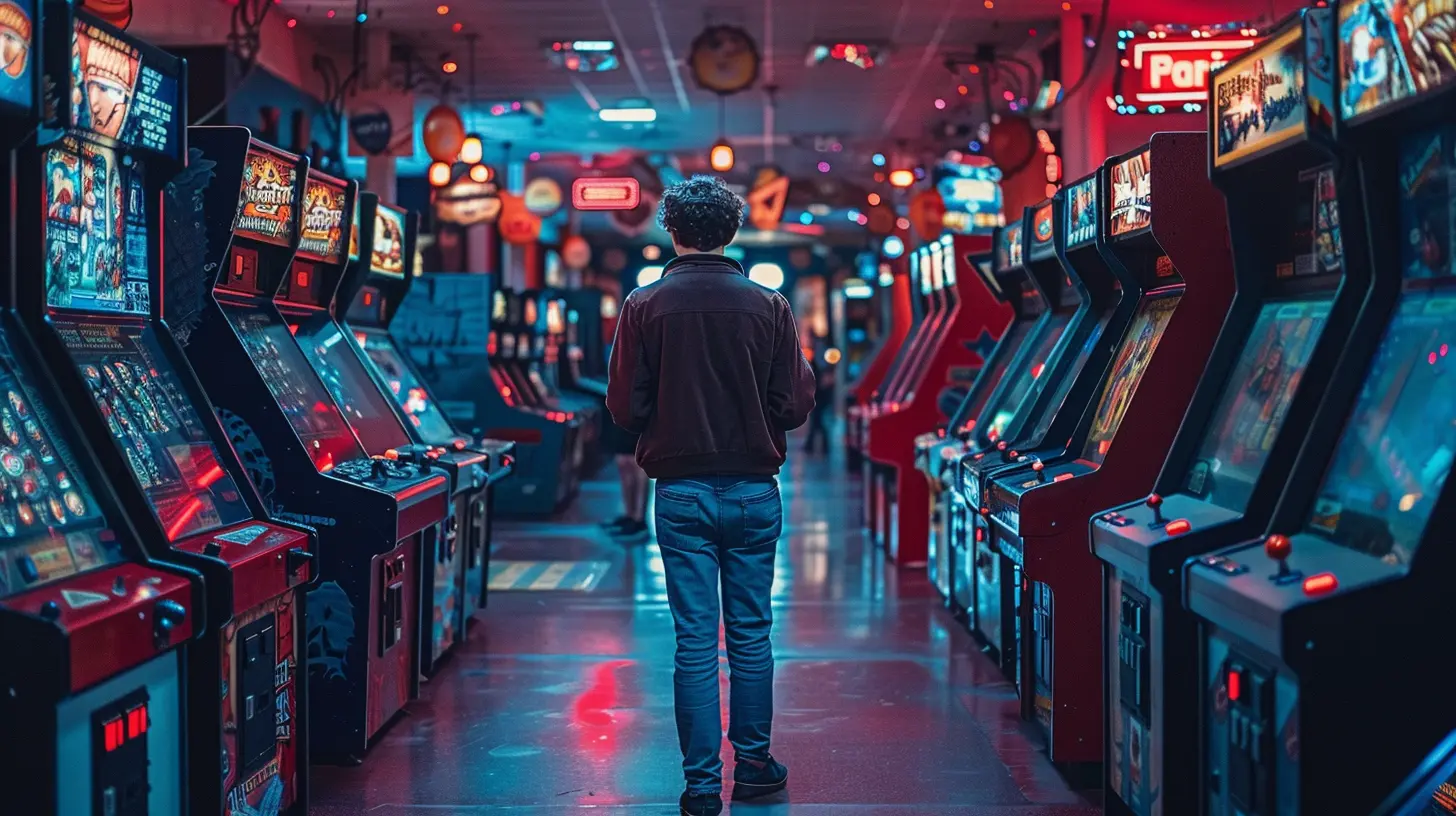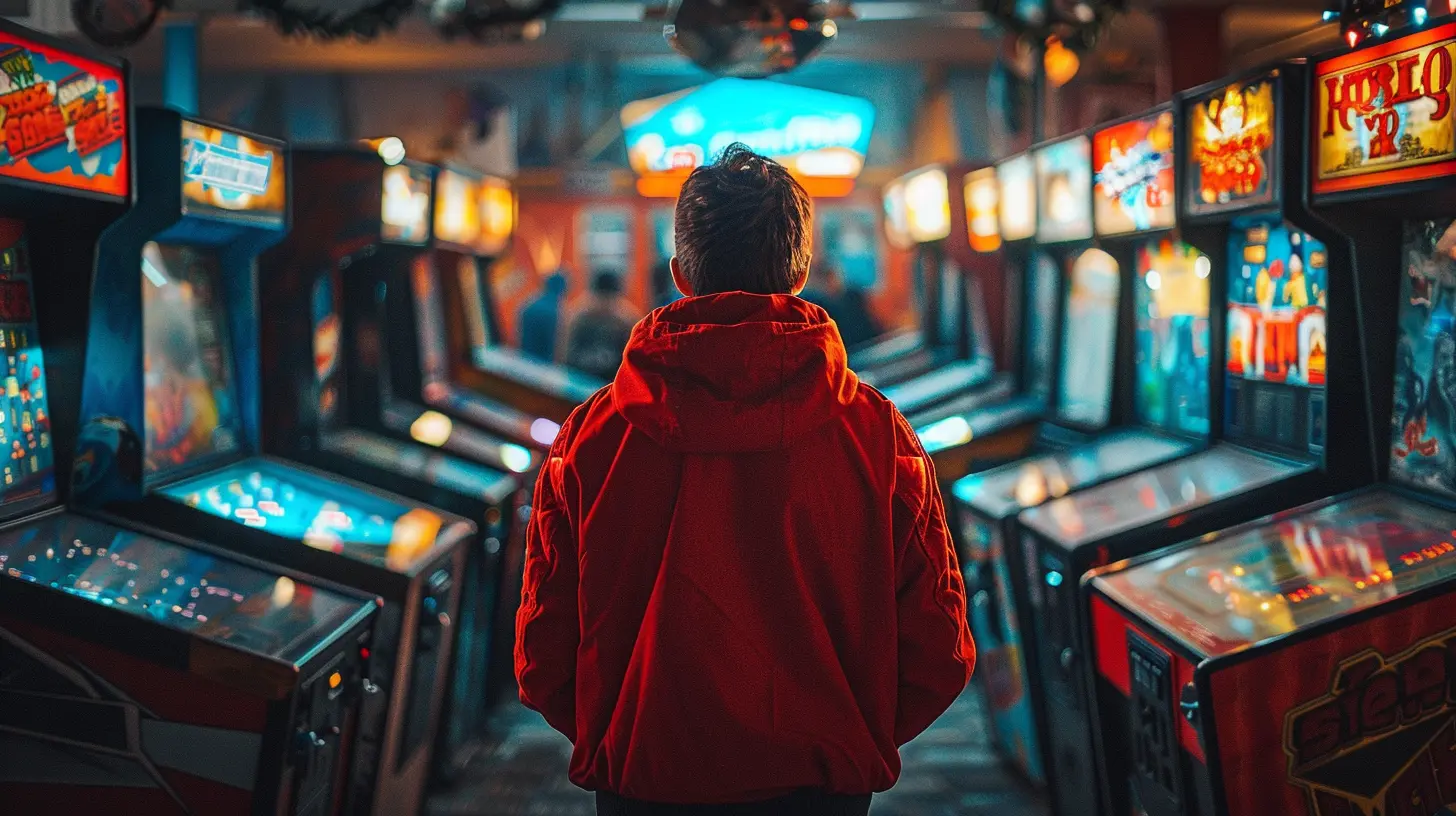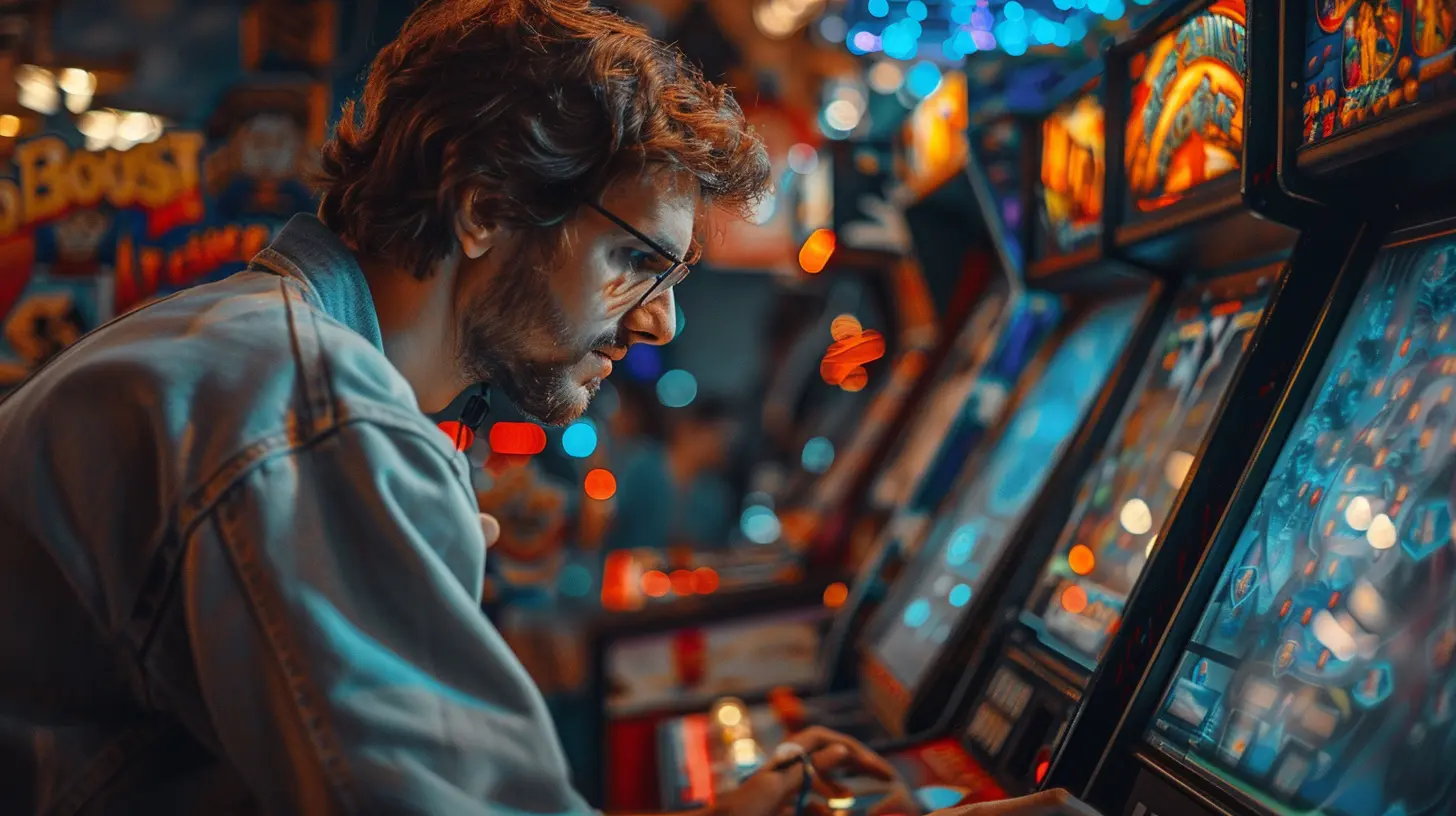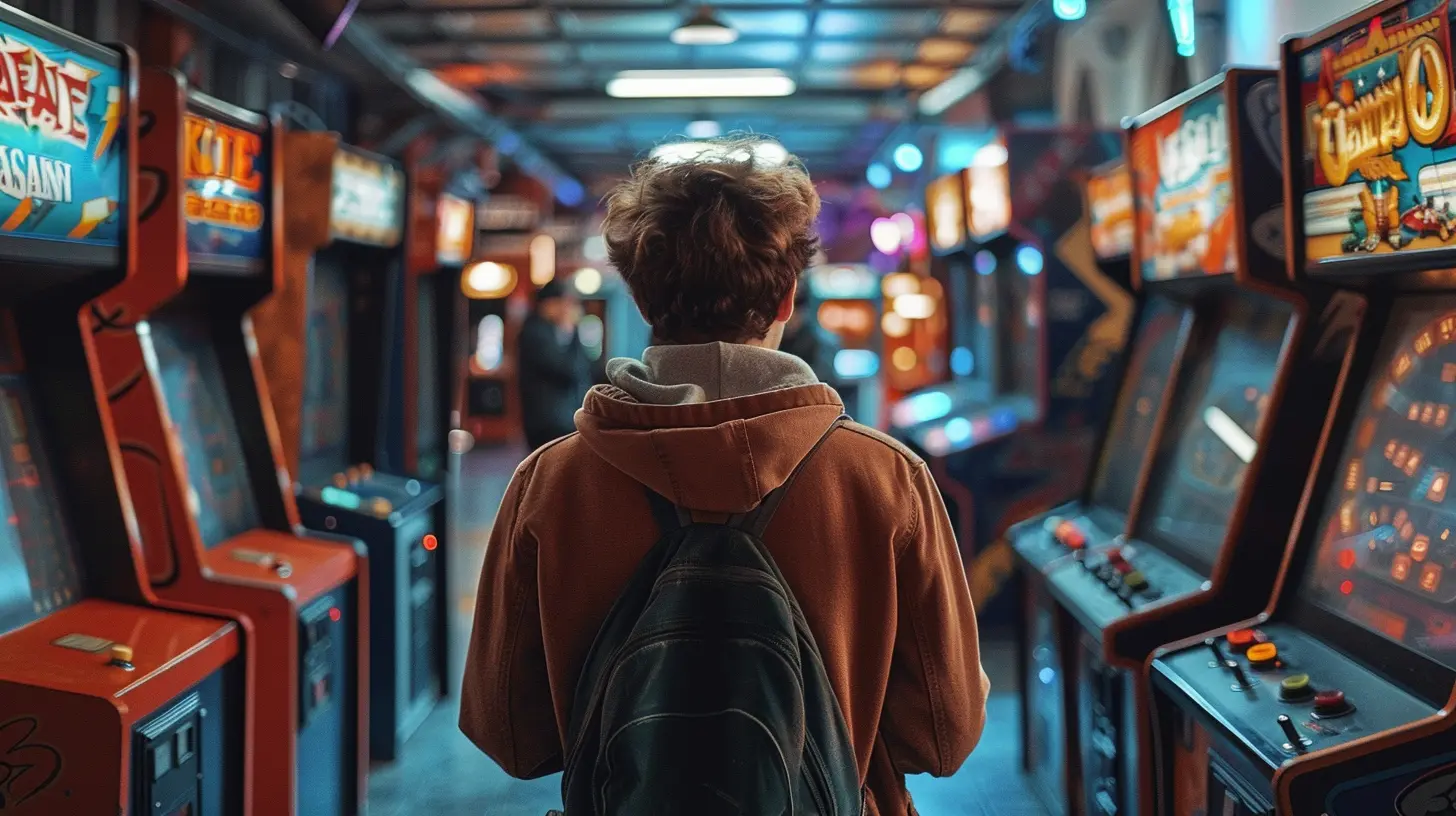The Psychology Behind Successful Arcade Gamers
6 October 2025
Let’s be honest—arcade gamers are a different breed. They're the ones who approach a blinking screen and erupting sound effects like it’s their personal Olympic arena. Have you ever wondered what makes someone absolutely crush it at arcade games? Is it natural talent, sheer practice, or some kind of sorcery kept in their back pocket? Well, spoiler alert: it’s mostly psychology. Yep, that mysterious three-pound organ sitting in their skulls holds all the secrets.
Today, we’re diving into the psychology behind successful arcade gamers. So grab your quarters (or load up that swipe card, you modern gamer, you), and let’s break this down. 
It’s All in the (Game) Mindset
Fixed vs. Growth Mindset: The Gamer's Dilemma
Ever heard of Carol Dweck? She’s a psychologist who cracked the code on the idea of mindset. Successful arcade gamers tend to have what’s called a "growth mindset." This means they believe skills can be improved through practice, not just innate talent.Picture this: You’re watching a newbie on Dance Dance Revolution. They trip over their feet, miss every arrow, and almost face-plant on the platform. A person with a fixed mindset would say, “I suck. This game hates me. I’m out.” But gamers with a growth mindset? They’re thinking, “Alright, that was rough, but round two—I’m coming for you, arrows.”
This belief that they can get better keeps them in the zone (and in the arcade) way longer. Eventually, they hit those endless combos that make bystanders gasp in awe.
The Role of Dopamine: Arcade Gamers' Real MVP
Why Winning Feels So Dang Good
Every time you clear a level, beat a high score, or land a killer Pac-Man move, your brain rewards you with a hit of dopamine. This isn’t just your brain saying, “Hey, good job, bud.” Nope. This is your brain throwing a mini rave in your honor.Dopamine reinforces behavior, which is why arcade gamers keep coming back for "just one more go." They’re chasing that high. Essentially, successful arcade gamers are dopamine junkies. But hey, at least it's healthier than chasing a sugar rush with a Slurpee.
Hand-Eye Coordination: Like a Jedi with a Joystick
Practice Makes Precision
Okay, I know what you’re thinking: “Not all successful arcade gamers are naturally good at hand-eye coordination.” And you’re right! But here’s the thing—they aren’t born with freakishly fast reflexes. They build them.Repeated gameplay sharpens their coordination like a knife on a whetstone. The more they play, the more their brain wires itself to recognize patterns, anticipate movements, and react faster than a caffeinated squirrel. Honestly, I wouldn’t be surprised if serious arcade gamers could catch a fly mid-air with chopsticks after a few hours of Street Fighter.
The Zen of Focus and Flow
Entering the Flow State
Ever seen an arcade gamer lock their eyes onto the screen like it’s the only thing that exists in the universe? That’s called the flow state. It’s when you’re so laser-focused on what you’re doing that the outside world just… fades away.Flow isn’t just a random superpower; it’s a skill. Successful arcade gamers train themselves to block out distractions, whether it’s their buddy heckling them from the corner or a baby throwing a tantrum near the claw machines. For them, the game is the Jedi Temple, and they are the Padawan about to level up.
How They Do It
Achieving the flow state comes down to a combination of challenge and skill. The task can’t be too easy (boring!) or too difficult (rage-quit territory). Successful arcade gamers thrive in that sweet spot where the difficulty pushes them just enough to stay engaged.Memory: The Unsung Hero of High Scores
Pattern Recognition FTW
Ever wondered why some gamers can absolutely crush rhythm games like Guitar Hero or Taiko Drum Master? Spoiler: It’s not just timing—it’s memory. The more they play, the more their brain becomes a memory factory, storing patterns, sequences, and even button combinations. Their brains are basically running a highlight reel of their last 10 matches, and they’re ready to capitalize on it.Muscle Memory: The Secret Weapon
It gets even spicier. Successful arcade gamers don’t just rely on their brains; they outsource some of the work to their muscles. This is called muscle memory, and it’s basically your body saying, “Don’t worry, brain. I’ve got this one.” After countless hours of practice, their fingers just know where a button is without conscious thought. It’s kind of like typing on a keyboard—you don’t think about where "Q" is. You just hit it.Emotional Resilience: Losing Like a Pro
The Psychology of Failing Better
One of the biggest hurdles in arcade gaming (and, honestly, life) is dealing with failure. Gamers lose a lot. That claw machine doesn’t care if you just spent your life savings trying to grab that plush Pikachu.The difference? Successful arcade gamers don’t let losing rattle them. They’ve built up emotional resilience—a fancy way of saying they don’t slam the joystick and storm off when things don’t go their way.
Instead, they treat failure like free advice. Did they mess up because they hesitated? Misread the timing? Pressed the wrong button? They learn from mistakes and adapt, using each setback as a stepping stone to greatness. It’s basically the arcade equivalent of an inspirational montage.
Community and Competition: The Arcade Ecosystem
Iron Sharpening Iron
Here’s the thing no one tells you—playing alone can only get you so far. Many successful arcade gamers thrive because they’re part of a community that pushes them to improve. Whether it’s through a friendly high-score rivalry or straight-up competing in tournaments, arcade gamers level up by facing off against others.Imagine two friendly rivals going head-to-head in Tekken. Every match is a lesson—one gains new strategies, the other learns what counters their moves. It’s like sharpening a blade against another blade. But instead of swords, you’ve got… joysticks.
Adaptability: The Arcade Gamer’s Superpower
Mastering Unpredictability
Arcade games aren’t static. They throw curveballs at you—faster enemies, trickier levels, and sometimes, that one controller with the sticky buttons (ugh). The most successful players thrive in chaos. They adapt faster than a chameleon on a rainbow, shifting strategies on the fly.This adaptability makes them legends not just in arcades but also in life. Ever seen an arcade champ figure out a hacked vending machine? Bet you they’ve got it working in 15 seconds flat.
Why It Matters: Beyond the Game
Let’s face it—arcade gaming isn’t just about high scores and bragging rights. The psychological traits that make someone a successful arcade gamer—resilience, focus, adaptability, a growth mindset—are skills that translate into real life. Whether you’re crushing it in Donkey Kong or crushing a presentation at work, these skills stay with you.So yeah, those gamers you see glued to the screen? They might just be honing life skills while you scoff (and secretly wish you were better at Space Invaders).
Final Thoughts
Arcade gaming isn’t just about smashing buttons and yelling at screens. Behind every high score is a cocktail of psychological traits, practice, and sheer determination. Whether it’s mastering muscle memory, achieving the flow state, or just staying cool under pressure, successful arcade gamers have tapped into some serious mental superpowers.So, next time you see someone absolutely wrecking a Time Crisis machine, give them a nod of respect. They’re not just gamers—they’re psychological ninjas. Now, if you’ll excuse me, I’ve got some practicing to do. That high score isn’t going to beat itself.
all images in this post were generated using AI tools
Category:
Arcade GamesAuthor:

Francesca West
Discussion
rate this article
1 comments
Henrietta Rocha
This article offers a fascinating look into the mindset of successful arcade gamers. Understanding their psychology sheds light on the dedication, strategy, and social dynamics that drive high scores and competitive spirit.
October 7, 2025 at 3:26 PM

Francesca West
Thank you for your insightful comment! I'm glad you found the exploration of arcade gamers' psychology engaging. Their dedication and strategies truly highlight the depth of competitive gaming.


